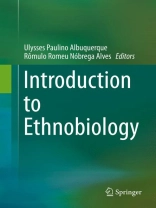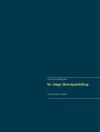This textbook provides a basic introduction to ethnobiology with key concepts for beginners. It is also written for those who teach ethnobiology or related fields. The core issues and concepts, as well as approaches and theoretical positions are fully covered.
Daftar Isi
What Is Ethnobiology.- History Ethnobiology.- Ethnobiology Or Ethnoecology.- Historical Ethnobiology.-Paleoethnobiology.- Urban Ethnobiology.- Diaspora Ethnobiology.- Ethnophycology.- Gastronomic Ethnobiology.- Ethnoprimatology.- Ethnobiology Of Change.- Political Ecology.- Ethnobiology, Ethics And Traditional Knowledge Protection.- What Is Environmental Perception.- Biota Perception And Use.- Biological Bases For Human Perception.- Risk Perception.- How And Why Should People Classify Natural Resources.- Alternative Views Of Folk Classification.- Fungi.- Food Plants.- Medicinal Plants.- Tonic Plants.- Magic Plants.- Ornamental Plants.- Timber Resources.- Animal Resources.- Plant And Landscape Local Management.- Indigenous Use Of Tropical Biodiversity And Ecosystem Domestication.- Extractivism Of Plant Resources.- Plant Domestication.- Domestication Of Animals.- Ethnobiology And Biodiversity Conservation.- Local Or Traditional Knowledge Transmission And Natural Resource Use.- Gender And Age.- Ethnicity, Income And Education.- Urbanization, Modernization And Nature Knowledge.- How Does Social Status Relate To Traditional Ecological Knowledge?.- Plant Knowledge And Use In The Context Of Migration.- Cultural Comparisons In Ethnobiological Research.
Tentang Penulis
Ulysses Paulino de Albuquerque, Federal Rural University of Pernambuco, Recife, Brazil
Romulo Romeu da Nobrega Alves, State University of Paraiba (UEPB), Brazil












